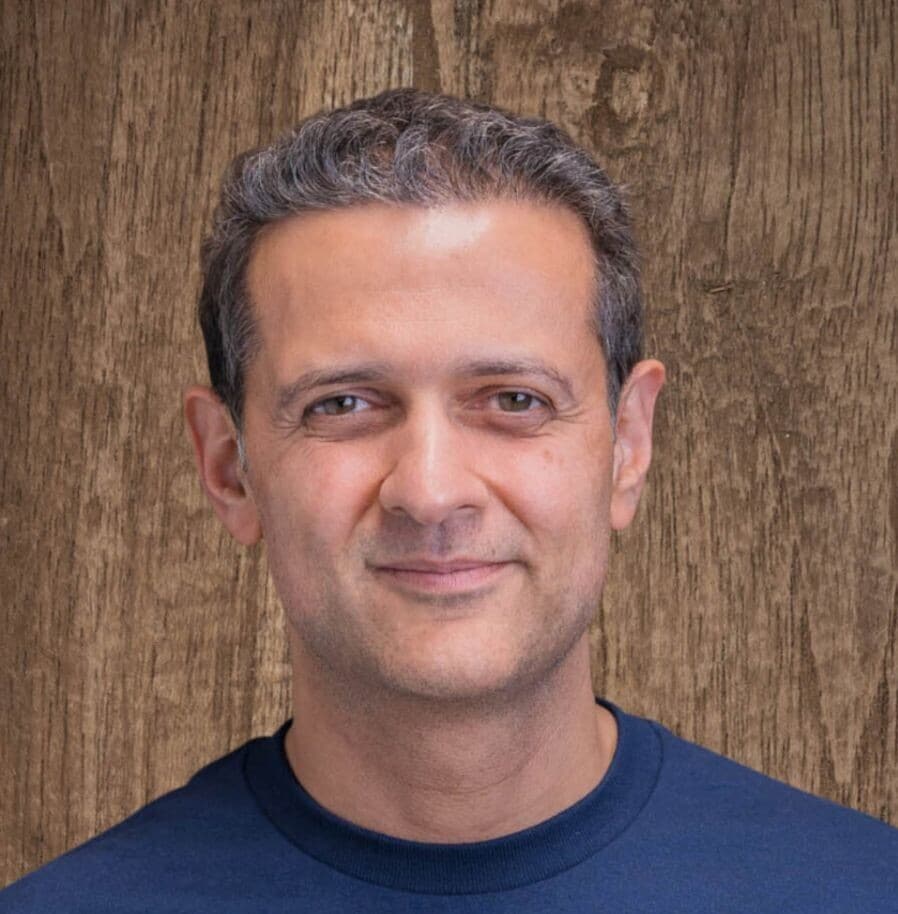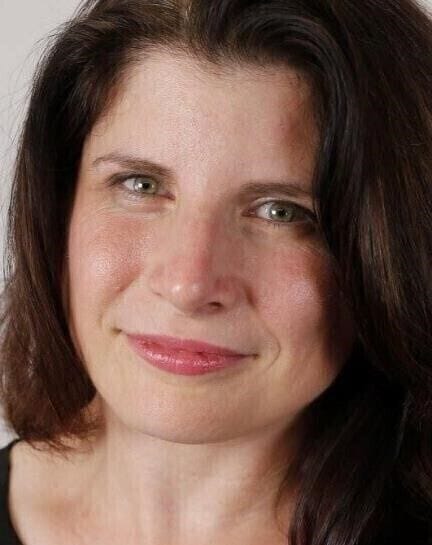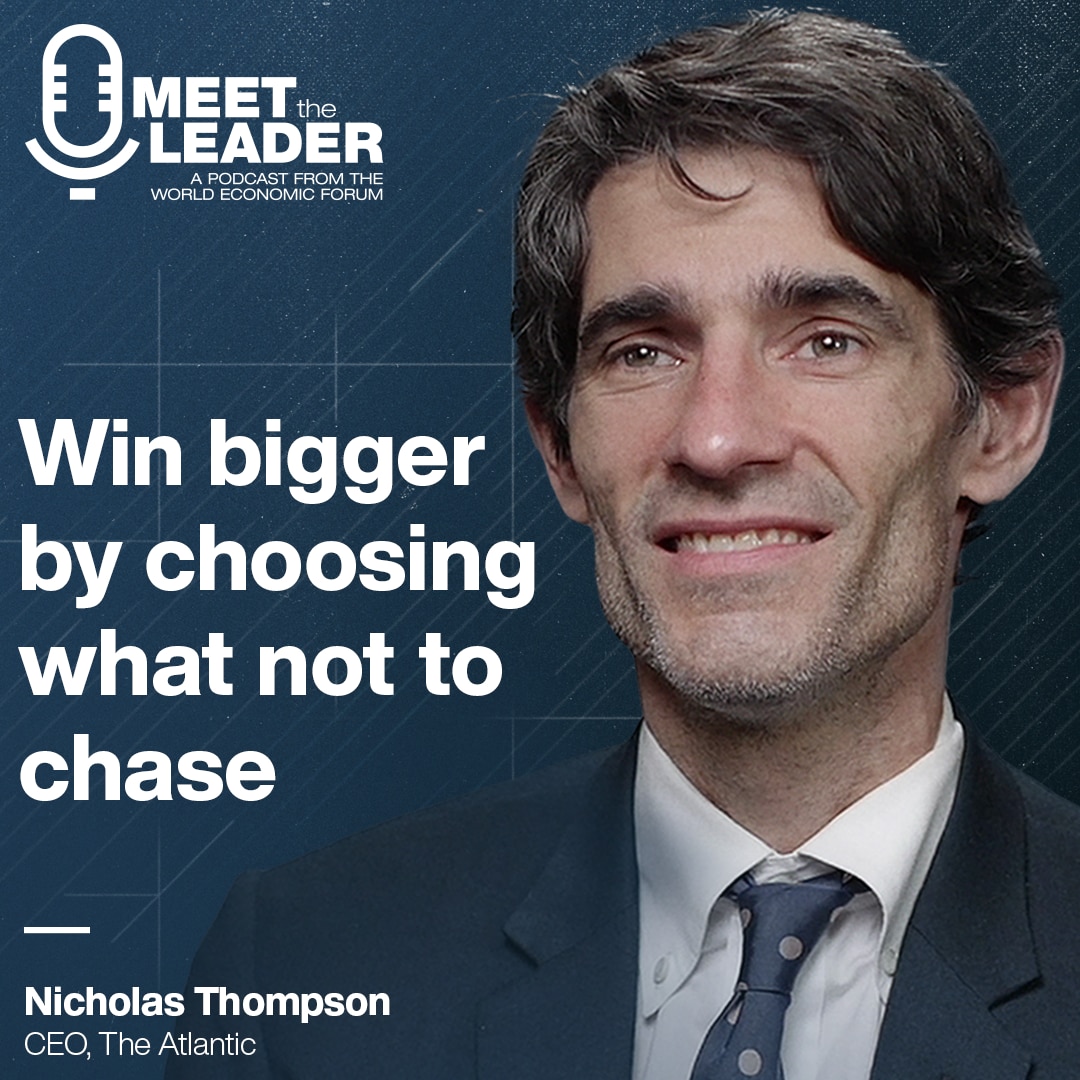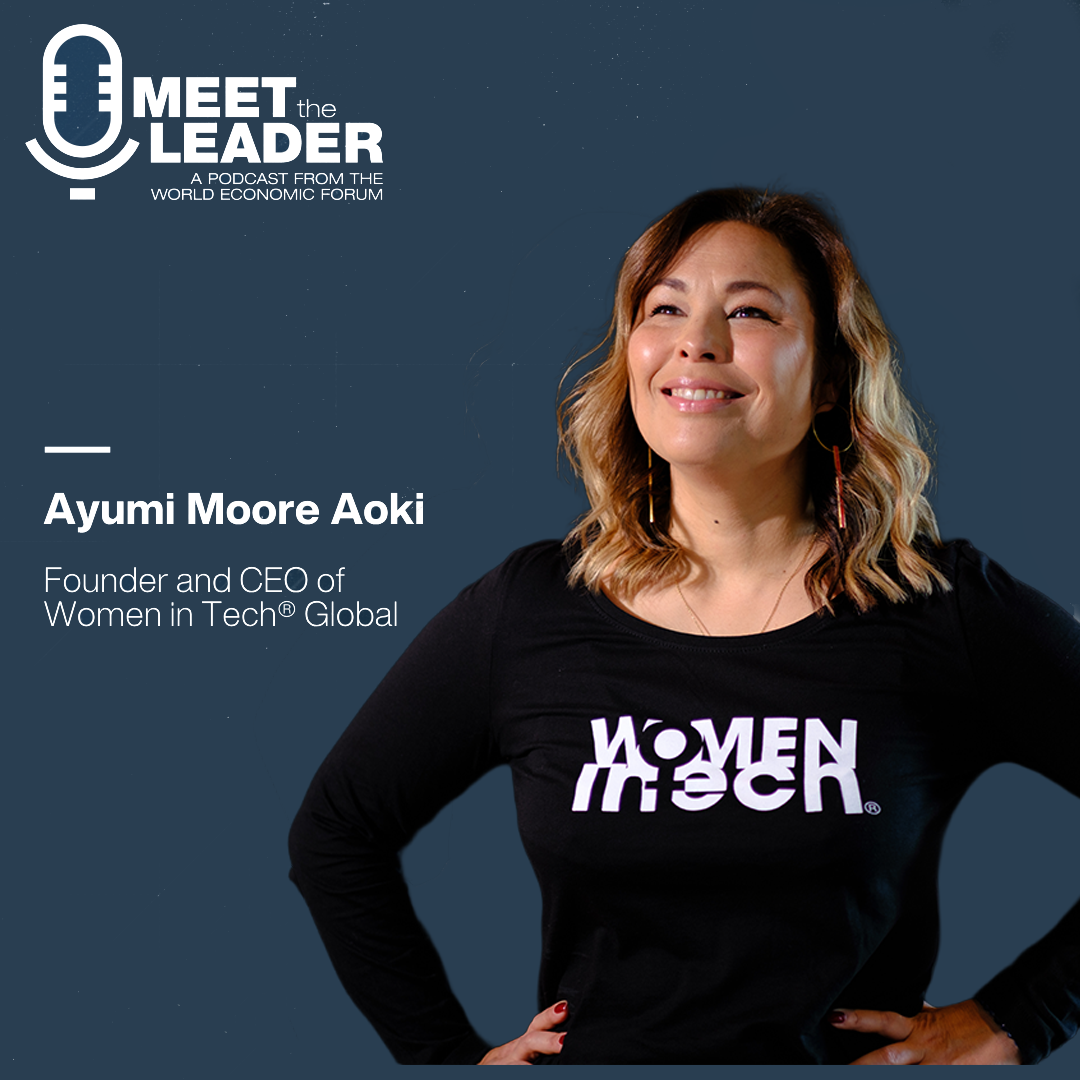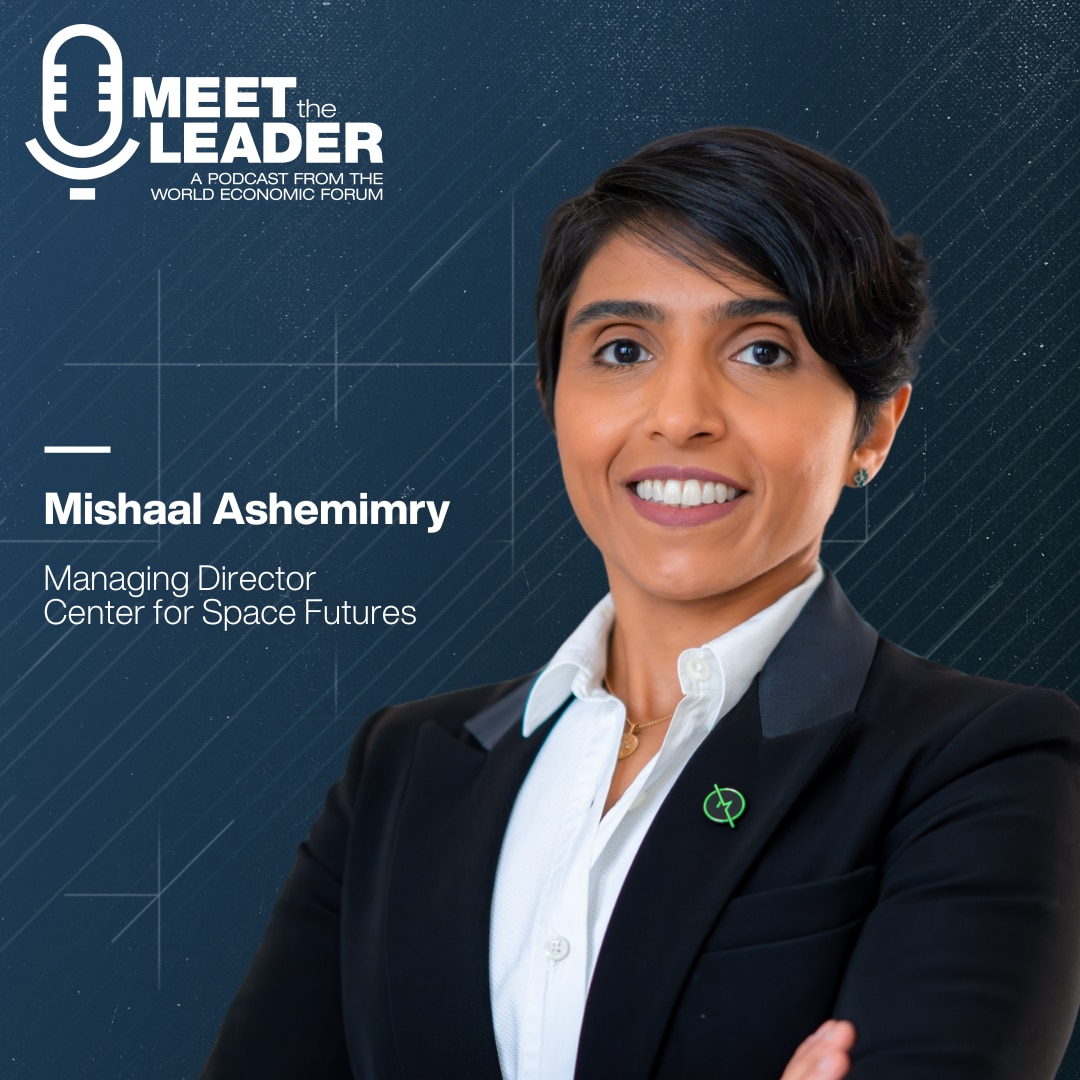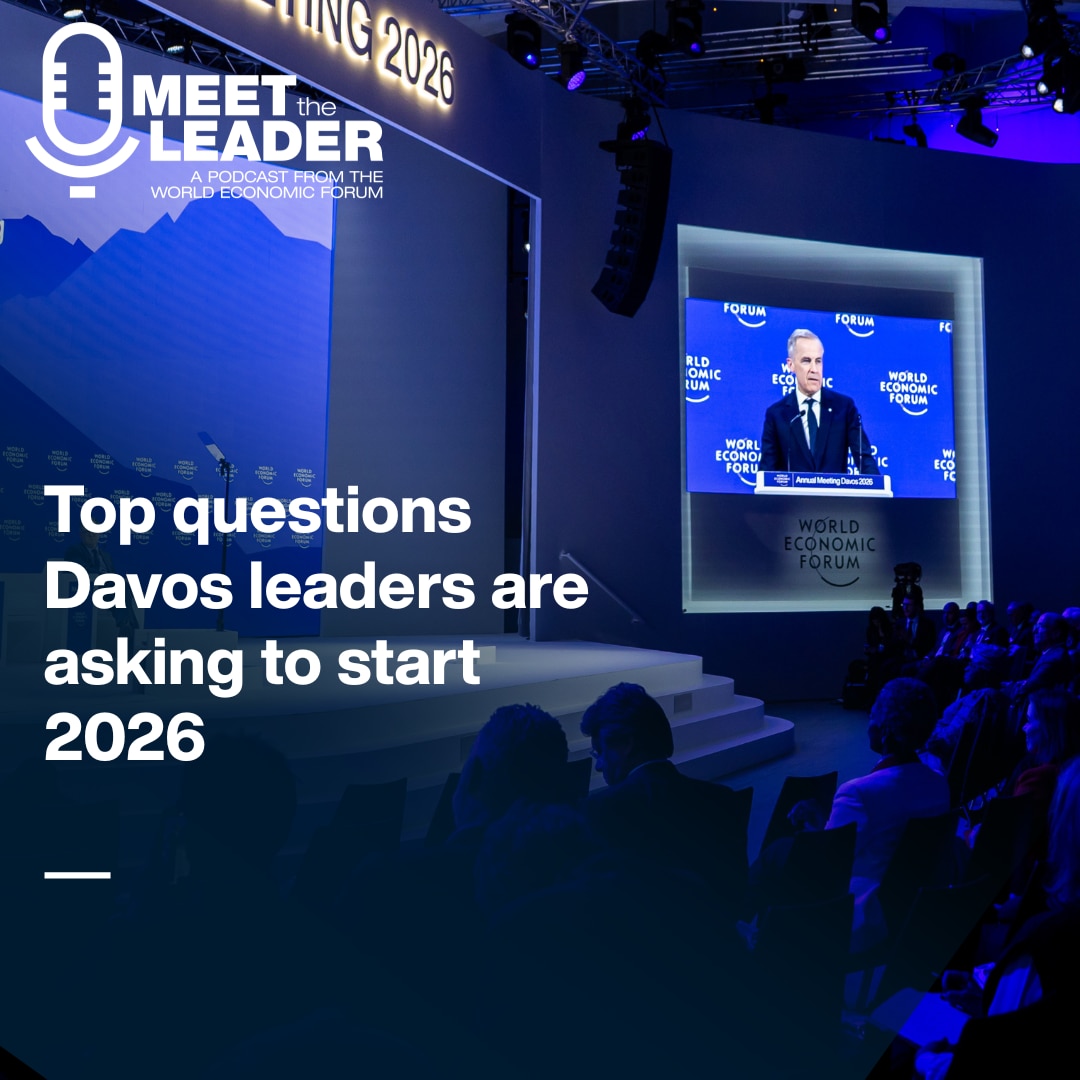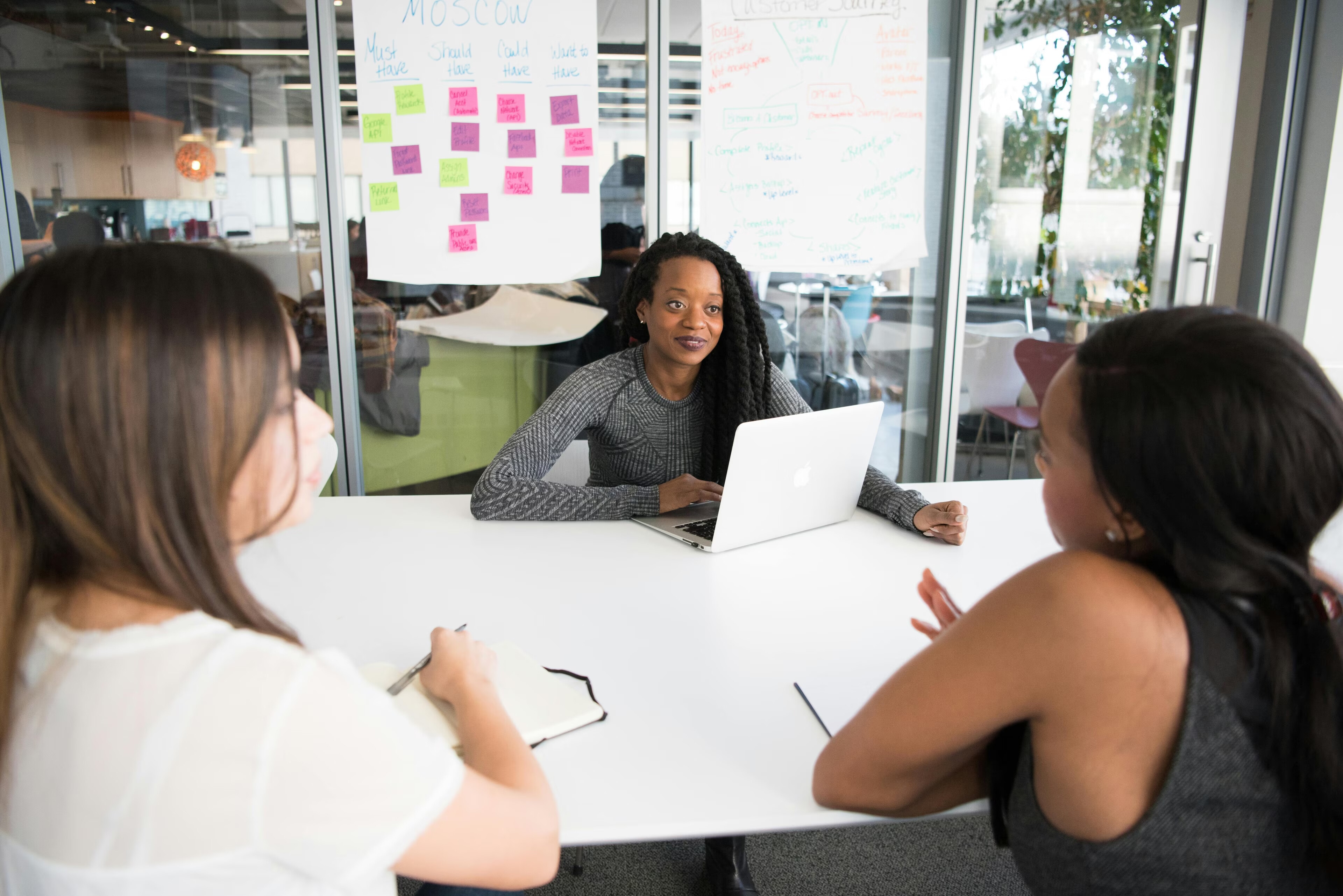Build your own personal board of advisors - Great mentors share these traits
ポッドキャスト・トランスクリプト
Linda Lacina, Meet The Leader Welcome to Meet the Leader, a podcast where top leaders share how they're tackling the world's toughest challenges.
In today's episode, we talk to Rishi Khosla. He is the founder of OakNorth Bank and has helped made possible a special mentorship program for entrepreneurs. He'll tell us what anyone can learn about mentorship and making the most of the expertise around you right now.
Subscribe to Meet the Leader on Apple, Spotify, and wherever you get your favorite podcasts. And don't forget to rate and review us. I'm Linda Lacina from the World Economic Forum and this is Meet the Leader.
Rishi Khosla, OakNorth It's really someone who provides an opinion but doesn't impose their perspective.
Linda Lacina, Meet The Leader Rishi Khosla is a serial entrepreneur who got his start early. In one of his first businesses as a kid he rented out his parents VHS tapes to his teachers. He even charged late fees. It was a pure profit business and a big success.
Of course, entrepreneurship is not always that easy. In fact, the difficulty he faced getting the funding to help scale an early data analytics company inspired him and his co-founder to start OakNorth, a fintech business as well as OakNorth bank, a UK digital commercial bank focused on helping savers invest in businesses in their communities, creating thousands of jobs and helping to scale companies with 1 million and $100 million in revenue.
The lessons that he has learned as an entrepreneur have inspired him to connect the dots for others. To this end, OakNorth has developed a special Mentorpreneurship program with the London School of Economics, all to help build socially conscious businesses through mentoring.
We talked at Davos about what's needed for a good mentor, but also how to make the most of the expertise around you and how an entrepreneurial mindset can help you build a personal board of directors who can give you the insights that top leaders don't always get when they're looking to make solid, informed decisions. He will tell us all about that. But first, he'll tell us more about the start of OakNorth
Rishi Khosla, OakNorth A personal pain point is always like one of the things which stays very strongly in you, and especially when you get a religion around saying how do I go and solve this for others?
And that's exactly what we had. And I say we because my co-founder and myself, we started our previous company together and OakNorth, and it was really the previous company while we were building that. So that was a financial data and analytics business.
We started that with very little capital, and we got to the point where business was growing exponentially, and we just never had a lot of working capital in the business. We had 2 or 3 weeks of working capital, which sort of meant if a client didn't pay, like on the day, we'd start sweating about whether we're going to make payroll.
So we said to ourselves. Let's go and put a line of credit in place with with a commercial bank. We spent a couple of months with two different commercial banks and our unceremoniously shown the door, and a few months later we went to one of our institutional clients who's used to servicing much larger companies, and they gave us 100 times the amount of debt that the commercial bank wouldn't give us. And not only do they give us a hundred times the amount of debt, but they gave us that to pay out as a dividend.
And we said to ourselves. Wow. It's like commercial banks can service us for a relatively modest amount of financing. But yet someone who's spent the time, someone who's used to spending time on larger companies and therefore did the work, could actually lend this 100 times amount of capital.
So that was the aha moment for us. And that was early in the gestation of our previous business that we started out in 2002. This happened in 2005. That company ended up building up to 3,000 people, and we ended up selling that to Moody's Corporation.
And when we came toward selling the business, that's when we started thinking about how structural is this? How common is this? And the more we dug, the more we found that actually this was structural. This actually was a dynamic which resonated across all major markets. And we were like, this is a problem which is worth solving because a lot of these companies are highly productive businesses. They're the businesses which drive productivity, employment, GDP growth within communities. So our view was actually this is something which is very, very much worthwhile in terms of business mission. And our view was we'd be able to create a great business on the back of it.
Linda Lacina, Meet The Leader Tell me a little bit about your background and how that has prepared you to run and found OakNorth.
Rishi Khosla, OakNorth So my background: born, brought up in London, my father had a job, started a business focused on building services, equipment, mechanical, electrical in the Middle East region. And whenever there was conflict in any Middle Eastern country that he was dealing in, his business ended up sort of diving. And he went through therefore many, many bumps. And I saw just an incredible amount of resilience in terms of his ability to sort of like get up each time and sort of, you know, dust himself off and sort of carry on. Left a very strong imprint on me at a very early age.
So seeing that I always had a burning desire to go build a business, which actually, again, had a mission and actually did good, and from a very early age, I was lucky enough to have some mentors who came into my life. And I realized the value of being mentored.
And I would sort of say my first mentoring conversation was probably at the age of 12 or so, and then from then all the way through to today, it's almost like having a panel of advisors and having a panel of mentors. And I think that's that's just been incredibly helpful dynamic within my life.
Linda Lacina, Meet The Leader When talking about mentors, what makes a good mentor?
Rishi Khosla, OakNorth It's really someone who provides an opinion but doesn't impose their perspective. Helps someone think through, helps like decompose, almost, like a thought, question, the dynamic. And through that, actually just helping work the thought process with the mentee. It's sort of what makes a good board member. You want diversity in opinion, right? You don't want a board with a single voice, right? In the same way, you don't want a mentor to have a strong single voice. Helping run the thought process is really important there.
Linda Lacina, Meet The Leader What would surprise people about a really effective mentor or mentee. Is there some kind of trait or quality?
Rishi Khosla, OakNorth You can be mentored in all aspects of one's life, right? And mentoring, it's sometimes it's a label that it's getting advice. We often get advice from -- whatever -- our siblings from, you know, our friends, our parents, etc. And it's really understanding that if you're open to being mentored, if you're open to in a way, listening, then you can get mentored from all different angles and from many different people. Not necessarily someone who's like an icon within your world. And that's also been a clear realization, right? In terms of actually a mentor doesn't have to be someone who has to be someone who has high believability in the area that you're interested in, but that maybe not necessarily, for example, if you're building a business in your specific industry.
If you're open to being mentored, if you're open to listening, then you can get mentored from all different angles and from many different people.
”Linda Lacina, Meet The Leader You'd mentioned that, you know, hey, mentors are helped you in many different points in your life. Can you tell me about some pivot points for you and that were meaningful that a mentor had been around for?
Rishi Khosla, OakNorth There are so many examples. Probably one of the strongest ones is when you're building a business, there are lots of bright, shiny things everywhere, right? If you start chasing all of those bright, shiny objects, you get so defocused on actually being able to deliver and execute against your mission. And ultimately, that diffusion means that you just don't move forward at the same velocity that you otherwise could. So keeping focused and sort of understanding that there are going to be many, many great opportunities. That actually choosing a narrow area for you to focus on, and actually absolutely focusing on delivering on that.
Linda Lacina, Meet The Leader I want to talk about Mentorpreneurship. And that is the name of a programme that OakNorth has launched with the London School of Economics. Tell us a little bit about it.
Rishi Khosla, OakNorth We've benefited immensely from mentoring, and we continue to benefit immensely from mentoring. And I view us mentoring and also the entrepreneurial growth mindset are both things that we think are incredibly important. One almost helps feed the other as well.
And our view in the UK was actually if we could help school students, university students and recent alum actually get the benefit of mentoring, given how much we know it's had an impact on our own paths, that that would actually open up the ability for many kids to effectively just have a much wider horizon, wider perspective, and maybe therefore have an impact in similar manner that's had on us and drive them to actually go and chase a mission.
So that's what triggered the desire to put something together. And the whole concept is you almost get this life cycle of mentoring. So where you have people who are 3, 4 or 5 years out of college, work with students who are in college. You have students in college who work with kids who are at school, and therefore you've got this relatability to the people who are coming in and mentoring. And some of that is also to inspire people and actually get to the emotions of, actually, this is something which you can do. It's like giving them ambition, giving them sort of, as they say, widening their horizons.
So that's what the programme's been designed around. Been running just over two years now, and we have something like 3,000 students who are participating at it. And again, across the board.
Linda Lacina, Meet The Leader Tell us a little bit about the training. What are the sort of the pillars of it?
Rishi Khosla, OakNorth They really go through, again, from a skills basis: How to mentor (Again, the point around advice, the points about listening, etc.). And then sort of understanding if there are areas where you don't have expertise, actually it's better not to give views. There are many business associations. And and some business associations, often the people who are giving advice portray themselves to be experts across a wide range of issues. And I think some of that can be misguided at times. Right. So it's again, stay within your wheelhouse. Stay within areas that you feel you have comfort. And also the whole point about being able to listen and sort of handhold people through thought processes rather than not.
Linda Lacina, Meet The Leader There's an entrepreneurial thinking element with this mentorship training. You know, why is entrepreneurial thinking so key to mentorship?
Rishi Khosla, OakNorth Entrepreneurial thinking is, in our view, all about that growth mindset, all about the mindset that you can do more. Not that you're going to have this sort of passive resistance in a way to change or thinking about something new or unleashing your mind. I mean, obviously here at Davos, your mind gets widened in an incredible way. All the conversations about GenAI here at the moment, and you just think about all the applications and you think about how this revolution can actually materially change our lives in a period of years, whether that's five years, ten years, or the like.
And being able to therefore think through those types of dynamics requires that entrepreneurial mindset requires, as I say, that growth mindset.
So therefore the combining of mentoring and entrepreneurship in our view is actually bringing bring those two things together i.e. mentoring with a growth mindset.
Linda Lacina, Meet The Leader A lot of leaders maybe they don't work in performance reviews, even in a classic sense anymore. Sometimes they're just too busy to even talk about people's development. You get the job because there's an opening and congratulations, right?
If you're a leader and you want to get better at having a development conversation with somebody, there's someone on your team. You think they're doing great, you know? And maybe it doesn't have to be some kind of formal thing where you're sitting down, you know, it can be like an informal thing, and you're giving them a little bit of micro feedback or support on something, what's a way that anybody can be a mentor and give that sort of positive development -- support -- to someone? What should they be saying or thinking? Are there opportunities where they can contribute in a helpful way?
Rishi Khosla, OakNorth Feedback is incredibly valuable, right? And the concept of sort of annual reviews bunch up a lot of feedback. And therefore, again, there's a lot of dilution of feedback because you're collecting it through the year and then you're trying to scramble to put together thoughts.
Sort of continuous feedback in a way which is constructive is not necessarily easy to achieve. Again, you've got extremes and models out there and some organizational models around this. But but more frequent feedback I think is just incredibly helpful for someone to actually continually improve.
Fundamentally, if you think about it. in any iteration cycle, if you're iterating every year on feedback versus iterating every week, every two weeks, real time, your learning cycle is going to be totally different. So more constant feedback, but in a way which is constructive if you are still running formal reviews. Really understanding, having a clear set of values or leadership principles which fundamentally act as the guiding light on actually what good looks like, right?
And then always having sort of that very clear two way view on what is the individual themselves think is going well, what do they think are opportunities for improvement? Where do they think their development opportunities actually exist? And actually again listening to that first and that's very similar to mentoring, right? I go back to spending time with our mentors. It's always about us actually sharing our thoughts in a way which is concise and somewhat thought through, which is respectful of their time, but enables that a really healthy dialogue.
Linda Lacina, Meet The Leader Is there a piece of advice that you've always been grateful for, whether it was from a mentor or from someone else in your life?
Rishi Khosla, OakNorth We've talked about stay focused, which absolutely has has stuck, and it's just chasing your passion, right? If you have conviction on something, everyone around you may be saying, you know, what are you doing? This isn't the right thing or it's not going to work, etc. And having conviction and staying the course and having that grit and hunger to keep on driving - just so, so important. And that's probably the single most important piece of advice.
Linda Lacina, Meet The Leader If I were a young person who's graduating this year, who's going to be having an unprecedented sort of career path with the quick cycles of technology and everything and unprecedented longevity, right? They're going to live longer than ever and have to deal with work in new ways. What, in your mind, is something that they should do to make the most of guidance that's around them? What's the tangible thing that they can do to to make the most of the phase they're in?
Rishi Khosla, OakNorth So this may be unpopular. The first thing I'd say is go into an office. If you have an office to go into, right. Because the amount you learn passively of just being around in an environment again, Davos - why isn't Davos online? Everyone travels here in minus ten centigrade temperatures, to be in proximity with each other right. That's serendipity which exists that that human interaction just so so critical to learn.
Outside of that, the learning cycles, the iterations, the development are just speeding up. Again, going back to GenAI is going to touch so many areas of what a company does. And frankly, companies that don't embrace and don't evolve, not over a 1 or 2 year period, but over 5, 10, 15, 20 year period. Those organizations are going to find it very hard. So being in a place which actually does have a growth mindset and continually learning through that. Absolutely critical.
Linda Lacina, Meet The Leader Is there a book that you recommend?
Rishi Khosla, OakNorth It's a classic, but I'd say The Hard Thing About Hard Things. Again, it's about grit. It's about perseverance. It's about yeah, things are hard. Work sometimes is hard. It's why it's called work. Again, as I said, it's about the absolutely resilience.
Linda Lacina, Meet The Leader Is there a time that you hit a wall and you weren't sure how you were going to get through it? But but you did. What's a time like that for you?
Rishi Khosla, OakNorth You have many walls all the time. I mean, it's always about getting more things right than you get wrong, and therefore you get a lot wrong in terms of actually, on a macro basis, hitting a wall. I think the early stages of building both businesses, you sort of been working on something which you think is going to cause the exponential curve to start moving up and it doesn't come, or there's little sound space, and that's when you need to go for a 20 minute walk, do some breathing and go back in. But yeah, multiple examples of that whilst building both businesses.
Linda Lacina, Meet The Leader We're looking at this year ahead that, you know, it's a critical point. It's a critical point to get some things in place as we build more inclusive AI. We want to build trust, not erode it. So it's a critical year for that. Every year that we have right now is a critical year for the climate. In your mind, given all of these things. What is something that needs to move forward this year, that leaders need to pay attention to and need to make sure that makes progress?
Rishi Khosla, OakNorth Look, I think all the points you talk about, I mean, we're massive, how can I call it, proponents of decarbonization of the economy. Right. The fact the last year was the hottest year on record. In terms of macro point. I keep on going back to the same point. It's understanding that there are all these changes. And therefore, building an organization more into something which is nimble and can move.
I mean, Satya Nadella at Davos has said multiple times about the fact that, yeah, there is no franchise value in his business because he has to, they have to, stay ahead. They have to keep on looking at the next wave. If they stayed at the PC era and hadn't moved to the cloud era, and from the cloud era now into the GenAI era. I mean, they wouldn't be where they are today. And there's so many organizations which don't have that perspective, which have a business model, and they just have all this resistance to actually changing and evolving from it. Or they think an evolution is almost like a micro step. Whereas if you look at the example they just went through, I mean, that's like a dramatic change in terms of affecting a business. I think that that's that's so much more important because the speed of change with GenAI and with drive to decarbonization is just going to rapidly accelerate.
Linda Lacina, Meet The Leader That was Rishi Khosla. Thanks so much to him. And thanks so much to you for listening.
Find a transcript of this episode, as well as transcripts from my colleague's podcast, Radio Davos, at wef.ch/podcasts.
This episode of Meet the Leader was produced and presented by me with Jere Johansson as editor, with Juan Toran as studio engineer in Davos and Gareth Nolan driving studio production. That's it for now. I'm Linda Latina from the World Economic Forum. Have a great day.
OakNorth Bank is a digital commercial bank founded by serial entrepreneurs who know firsthand the role advice and expertise play in growing vibrant businesses. To that end, OakNorth has developed a special 'mentorpreneurship' program with the London School of Economics, all to help build socially-conscious businesses through mentoring. Meet the Leader talked to co-founder Rishi Khosla about what traits great mentors share and how anyone can make the most of the expertise around them. He also shared why it can be powerful to consider mentorship as a way to build your own personal board of directors, people who can give you the range of measured, honest insights that aren't often easy for top leaders to find any other way.
To learn more:
- This episode's Transcript: https://www.weforum.org/podcasts/meet-the-leader/episodes/Traits-great-mentors-share-OakNorth-rishi-khosla
- "Mentorpreneurship" at the London School of Economics: https://oaknorth.co.uk/mentorpreneurship-programme/
- OakNorth: https://oaknorth.co.uk/
Related podcasts:
- 9 leaders from Microsoft, IKEA and more share advice for new grads: https://www.weforum.org/podcasts/meet-the-leader/episodes/9-leaders-share-advice-for-new-grads-2024/
- Workers have changed - How leaders must adapt: Randstad's Sander Van't Noordende: https://www.weforum.org/podcasts/meet-the-leader/episodes/how-leaders-must-adapt-randstad-sander-vant-noordende/
- Launch your brainchild: Raise Our Voice Australia's Ashleigh Streeter-Jones: https://www.weforum.org/podcasts/meet-the-leader/episodes/raise-our-voice-australias-ashleigh-streeter-jones-launching-your-brainchild/
トピック:
リーダーシップその他のエピソード:
「フォーラム・ストーリー」ニュースレター ウィークリー
世界の課題を読み解くインサイトと分析を、毎週配信。
